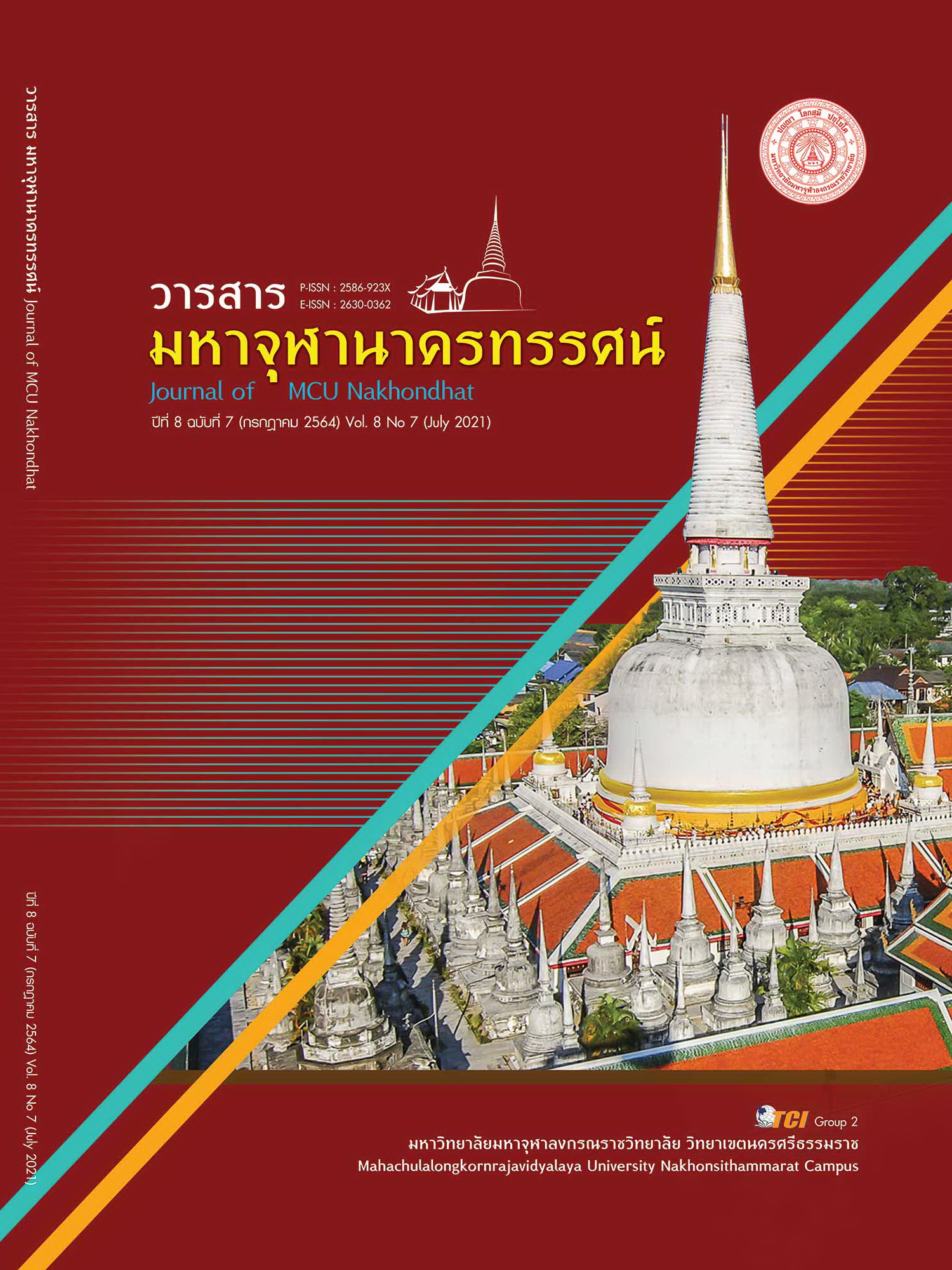SAPPURISA DHAMMA THE PRINCIPLE OF MODERN LIFESTYLE
Main Article Content
Abstract
Teachings in Buddhism with the highest aim to end suffering, Especially the suffering of the heart Modern society is facing many problems. Modern society. The lifestyle has completely changed from the past. The concept of people who have changed Putting more emphasis on oneself than looking at those around them or that we often hear the word "Phubbing" That represents a great change in modern life. Therefore, living in a modern society does not cause social problems and does not cause excessive emotional suffering. and able to live happily in society must be a person with virtue of 7 reasons is Sappurisa dhamma, which consists of 7 Is knowing the law; knowing the cause. knowing the meaning; knowing the purpose; knowing the consequence. knowing oneself. moderation; knowing how to be temperate. knowing the proper time; knowing how to choose and keep time. knowing the assembly; knowing the society. knowing the individual; knowing the different individuals. This principle will help people adhere and follow. Able to live in society without causing problems for both oneself and others Which the results of this person will be forwarded in a group as a society and a good nation Quality continues Hence, there is a need to cultivate a lot to the individual or in society because it will lead to the prevention and remedy of problems in society that arise primarily from human behavior. And help restore Help develop a better life for individuals, groups, communities.
Article Details
References
พระทองพจน์ ธีรธมฺโมและคณะ. (2561). “หลักสัปปุริสธรรมกับการแก้ไขวิกฤติปัญหาสังคม”. วารสารสมาคมศิษย์เก่า มหาวิทยาลัยมหาจุฬาลงกรณราชวิทยาลัย, 6(1), 51-65.
พระธรรมปิฎก (ป.อ. ปยุตฺโต). (2546). พจนานุกรมพุทธศาสตร์ ฉบับประมวลธรรม. (พิมพ์ครั้งที่ 12). กรุงเทพมหานคร: มหาวิทยาลัยมหาจุฬาลงกรณราชวิทยาลัย.
พระธรรมปิฎก (ป.อ. ปยุตฺโต). (2546). พุทธธรรม ฉบับปรับปรุงและขยายความ. (พิมพ์ครั้งที่ 10). กรุงเทพมหานคร: สหธรรมิก.
ภาวิดา มหาวงศ์. (2560). พฤติกรรมมนุษย์กับการพัฒนาตน หมวดรายวิชาการศึกษาทั่วไป มหาวิทยาลัยราชภัฏพิบูลสงคราม. ใน การประชุมวิชาการระดับชาติ “พิบูลสงครามวิจัย” (หน้า (ครั้งที่ 3). 3(1), 347-358).
สานิตย์ หนูนิล และคณะ. (2562). “ปัจจัยที่มีผลต่อรูปแบบการดำเนินชีวิตของคนรุ่นใหม่ในชนบทไทย”. วารสารพัฒนาสังคม, 21(2), 176-195.
อาภรณ์ รับไซ. (2560). พฤติกรรม (Behavior). เรียกใช้เมื่อ 5 มกราคม 2564 จาก https://www.scimath.org/lesson-biology/item/7001-behavior-7001
Bloom. B.S. . (1975). Taxonomy of Education. New York: David McKay Company Inc.
Jitpitak. C. . (1982). Behavioral sciences. Bangkok: mass media.
Lahey. B.B. (2001). Psychology : an Introduction. 7 th Edition. New York: McGraw – Hill Company, Inc,.


